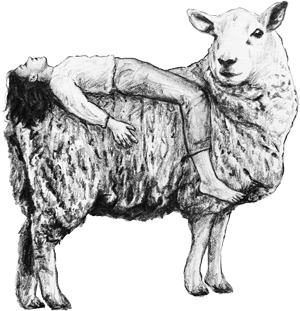I’ve heard it, you’ve heard it, we’ve all heard it. And in the past few weeks I have done it a lot which made me curious to explore the topic.
So, what do I mean?
That eating late at night is bad for you. It’s unhealthy and makes you gain weight, especially carbs. But is that actually true? And why would that be? In this article, we’ll explore the facts and what research says.
We will cover:
- Late eating and its effects on sleep quality
- Does eating before sleep effect weight gain
- Best practices if you can’t avoid eating late
Effects on Sleep Quality
Eating before bed doesn’t just impact your waistline; it can also affect how well you sleep. When you eat right before bed, especially if it’s a heavy meal, your body stays active to digest the food. This can disrupt your natural sleep cycle and make it harder to fall or stay asleep.
Sleep With a Full Stomach: What Happens?
- Discomfort: Sleeping on a full stomach can lead to indigestion, bloating, or acid reflux. This discomfort may lead to restless nights.
- Lower Sleep Quality: The body’s primary focus when you sleep is to repair and recover. If it’s now working hard to digest, this can interfere with deep sleep phases.
- Body Temperature: Your body temperature drops at night to prepare for sleep. Eating before bed forces your body to heat up again to digest, disrupting your natural cooling process for sleep.
- Night Wakings: Some people report waking up hungry after eating late. This might happen due to fluctuations in blood sugar, which can disrupt your sleep cycle.
Effects on weight gain
We all heard it. Eating close to bedtime is bad, it makes you gain more weight. But is that true?
Multiple studies show that people who eat late are more likely to be obese. However, this does not lead to the conclusion that late eating makes you gain weight.
It could just be that most people who eat late have other unhealthy habits. Let’s say you are also a late eater. But you don’t have those unhealthy habits. Then you would not become obese just from eating later in the day.
Or would you? Let’s find out!
Late Eaters Tend to Eat More and Worse
Studies have found that people who eat late tend to consume more calories in total over the day. Eating late was defined as within 2-3 hours before bedtime. The increase reached from 200 – 500 calories more.
But why?
- Mindless Eating: Late-night eating is often mindless, especially while watching TV or scrolling through your phone. This can lead to overeating, as you might not even notice how much you’re consuming.
- Cravings for Unhealthy Foods: Late at night, you’re more likely to crave high-fat, high-sugar snacks rather than a balanced meal. These foods are more calorie-dense and don’t make you feel full.
If that’s not you and you want to know if it’s bad to have dinner close to bedtime our next section is for you.
The Circadian Rhythm and your metabolism
Your body follows a natural rhythm known as the circadian rhythm. This internal clock not only regulates your sleep but also influences how your body processes food. It is well studied that your metabolism slows down as your usual bedtime comes closer.
Metabolism, what’s that?
The metabolism has the job of breaking down food into energy. Then using this energy to build new cells. A higher metabolism means your body can process and utilize food more efficiently. A lower metabolism indicates that your body is slower at breaking down nutrients.
Your metabolism and insulin sensitivity
With your metabolism slowing down your body becomes less insulin sensitive. Insulin regulates blood sugar levels. If your blood sugar increases (from eating a meal) your pancreas releases insulin. This allows your cells to absorb glucose from the bloodstream. Once in the cell it can be used for energy or stored for future use.
Now, close to bedtime you’re less sensitive to insulin. Meaning your body’s cells take longer to absorb the glucose and your blood sugar is higher for a longer time than it would have been earlier in the day.
When your body doesn’t need the glucose in the bloodstream for immediate energy, it must store it. The liver converts excess glucose into fat. This fat is then stored in adipose tissue, contributing to weight gain.
So according to this research eating the same meal closer to bedtime will make you gain more weight.
However, there is a rising discussion in the scientific community whether your metabolism can adapt to eating close to bedtime. But the scientific consensus tends to favor earlier eating for better metabolic health.
A very important point is that the consensus places more importance on total calories and the quality of those calories than on the timing of a meal. The effects on weight gain, if any, from late eating are very marginal.
Best Practices If You Need to Eat Before Bed
If you can’t avoid eating your dinner close to bedtime, or having a late-night snack there are some points to keep in mind:
Best Practices for Eating a Late Dinner:
- Keep it light: Opt for smaller portion sizes to avoid overloading your digestion.
- Prioritize protein and vegetables: Focus on lean proteins and veggies that are easier to digest and won’t spike your blood sugar.
- Avoid heavy carbs and fatty foods: These can slow digestion and raise blood sugar levels, making it harder to sleep.
Best Practices for Pre-Bed Snacks:
- Choose light, balanced snacks: Go for protein and healthy fats, such as a handful of nuts or a Greek yogurt.
- Avoid sugary or processed snacks: Stay away from sweets and chips, which can cause blood sugar spikes and disrupt sleep.
- Watch your portion sizes: Keep it small and simple, just enough to curb hunger without overfilling.
Conclusion
Eating close (within 2-3 hours) to bedtime is not optimal for several reasons:
- Poorer sleep quality and all the good stuff which comes from that.
- Statistically you’re more likely to make poorer food choices and consume more calories over the whole day.
- Even if you eat the same meal as you would eat earlier in the day you are likely to gain more weight from it. But only marginal. Quality and number of calories are far more relevant.



